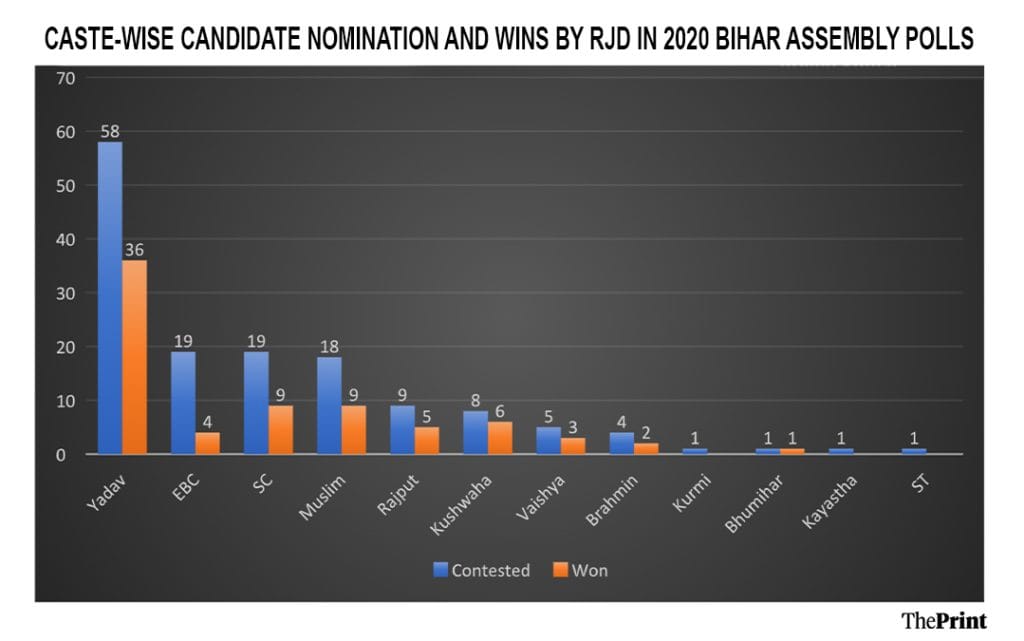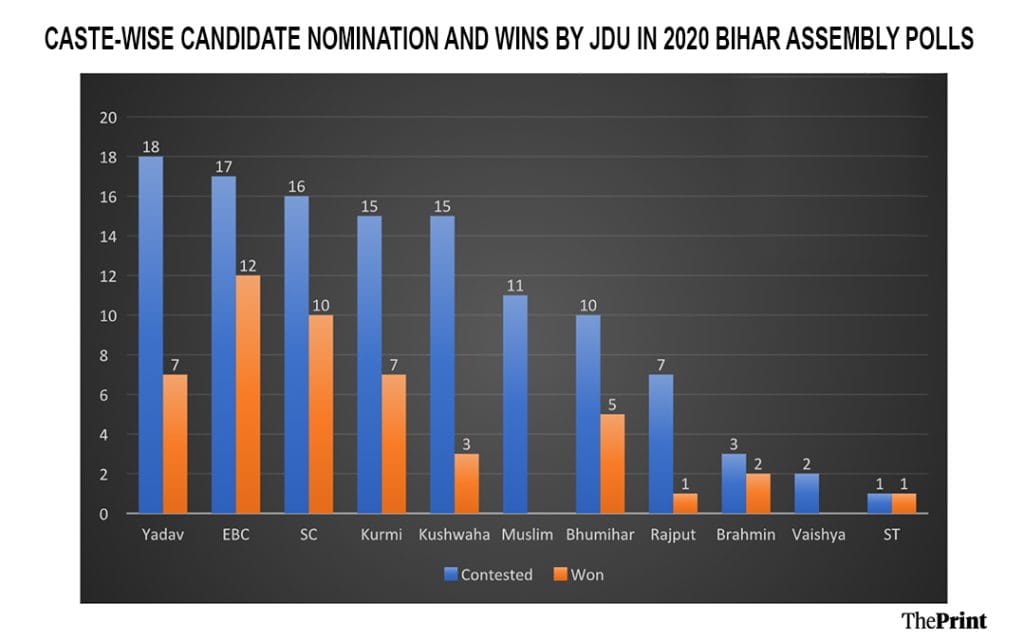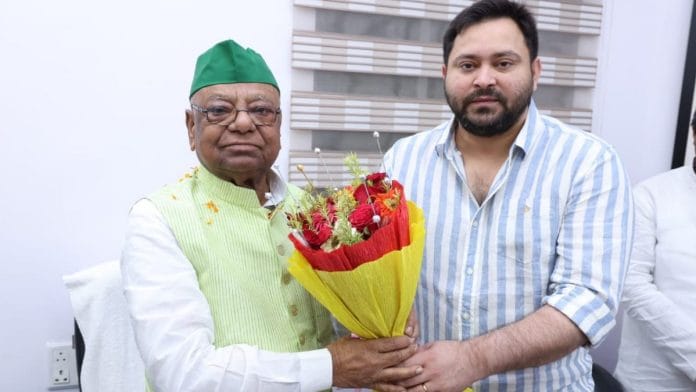As Bihar gears up for the assembly elections later this year, the opposition Rashtriya Janata Dal has appointed Mangani Lal Mandal as its new state president—the first time it has chosen someone who belongs to the Extremely Backward Classes, or EBCs, a voting bloc that comprises 113 castes and makes up 36 per cent of the state’s population.
So far, though, EBCs have shown an aversion toward the RJD. Instead, they have gravitated toward the JDU, now in alliance with the BJP, which mobilised its election machinery in Bihar immediately after winning the Delhi assembly election. The question now arises whether the RJD will succeed in its efforts to attract EBCs through the appointment of Mandal.
Based on an analysis of caste-wise candidate nominations by the RJD and JDU, and their respective victories in the 2020 Bihar assembly election, I argue that the RJD needs to move beyond political appointments for the mobilisation of such communities. It also needs to focus on exclusive policies intended to empower EBCs. Otherwise, it will be extremely difficult to break the scepticism of the EBCs.
Also Read: What’s behind Modi govt’s U-turn on caste census & how it targets Oppn ahead of crucial Bihar polls
EBC aversion to RJD in 2020 polls
Bihar is well known for caste-based political mobilisation. The caste background of candidates is an important indicator of how parties build their social coalitions. It also helps us to understand the support of different castes for various political parties.
Let’s take a look at the caste-wise candidate nominations and wins of the RJD and JDU in the 2020 Bihar assembly election. This analysis examines the caste composition of nominees and elected representatives from the RJD and JDU in the 2020 Bihar Assembly election, based on candidate data from media reports.
The graph below shows that the RJD’s highest number of candidates came from the Yadav community (58). After them, only three other groups—EBCs (19), Scheduled Castes (19), and Muslims (18)—had candidates in double digits. Seen as a whole, the RJD focused primarily on its traditional MY (Muslim-Yadav) base, followed by an attempt to bring in EBCs. However, its EBC candidates performed badly. Out of 19 nominated, only four won.

In contrast, JDU’s EBC candidates performed impressively. It nominated 17 EBC candidates, out of which 12 won. The party’s overall ticket distribution was also not concentrated on any one social group.
Seven social groups—Yadav (18), EBC (17), SC (16), Kurmi (15), Kushwaha (15), Muslim (11), and Bhumihar (10)—had candidates in double digits. It’s worth noting, though, that the highest number of JDU candidates also came from the Yadavs.

This nomination profile might be symbolic, but it also conveys a message that the party is not against the legitimate representation of any particular social group. Here, the RJD did not appear as above board, as it had nominated only one candidate from the Kurmi caste, which is the support base of the JDU.
In short, the above comparative analysis reveals EBCs have largely steered clear of the RJD. Despite nominating a larger number of candidates from the group, only four of its 19 EBC candidates won, compared to 12 of JDU’s 17.
Also Read: ECI’s voter verification drive in Bihar is tailor-made to keep Dalits, Muslims, EBCs out
RJD’s inadequate strategy
It is often stated that Nitish Kumar has created a constituency of women, MBCs, and Mahadalits, and these social groups have gradually become a strong support base of the JDU. To break the social base of any political party, a rival typically deploys two strategies: ticket splitting and policy changes.
The former means nominating candidates from those castes and communities, while the latter involves promising policies that benefit them. The RJD relied on the first strategy, nominating a high number of EBC candidates in the 2020 election. One may counter that the RJD also adopted the strategy of policy change by promising 10 lakh government jobs, from which EBCs would also potentially benefit. So why did EBCs not respond to such promises?
One answer could be low educational attainment among EBCs and their limited ability to benefit from reservation policies. Across North Indian states, EBCs have demanded a sub-categorisation within OBC reservations, arguing that they are unable to compete with politically dominant OBC groups such as Yadavs and Kurmis. The BJP responded by appointing the Justice Rohini Committee to examine this demand. At the same time, welfare schemes introduced by the Narendra Modi government have also reached these communities.
Because of its alliance with the BJP, the JDU has benefited from both strategies—ticket splitting and policy response—while opposition parties like the RJD have remained stuck on the former. This could partly explain the aversion of EBCs toward the RJD.
In the upcoming election, RJD’s Tejashwi Yadav is promising to extend the limit of reservation, along with the introduction of a domicile policy for government jobs. However, none of these policies are specifically targeted to address the grievances of EBCs. Unless the party does that, it would be a herculean task to break the aversion.
To sum up, the RJD’s attempt to expand its social coalition by adding EBCs to its MY base did not deliver encouraging results in the last election. Relying on ticket-splitting alone to mobilise these communities hasn’t worked.
The party now needs to explore mechanisms beyond candidate nomination. Offering specific welfare schemes could be one of them. Otherwise, it may just be staring at a repeat of 2020.
Arvind Kumar is a visiting lecturer in Politics & International Relations at the University of Hertfordshire, UK. He tweets @arvind_kumar__. Views are personal.
(Edited by Asavari Singh)






